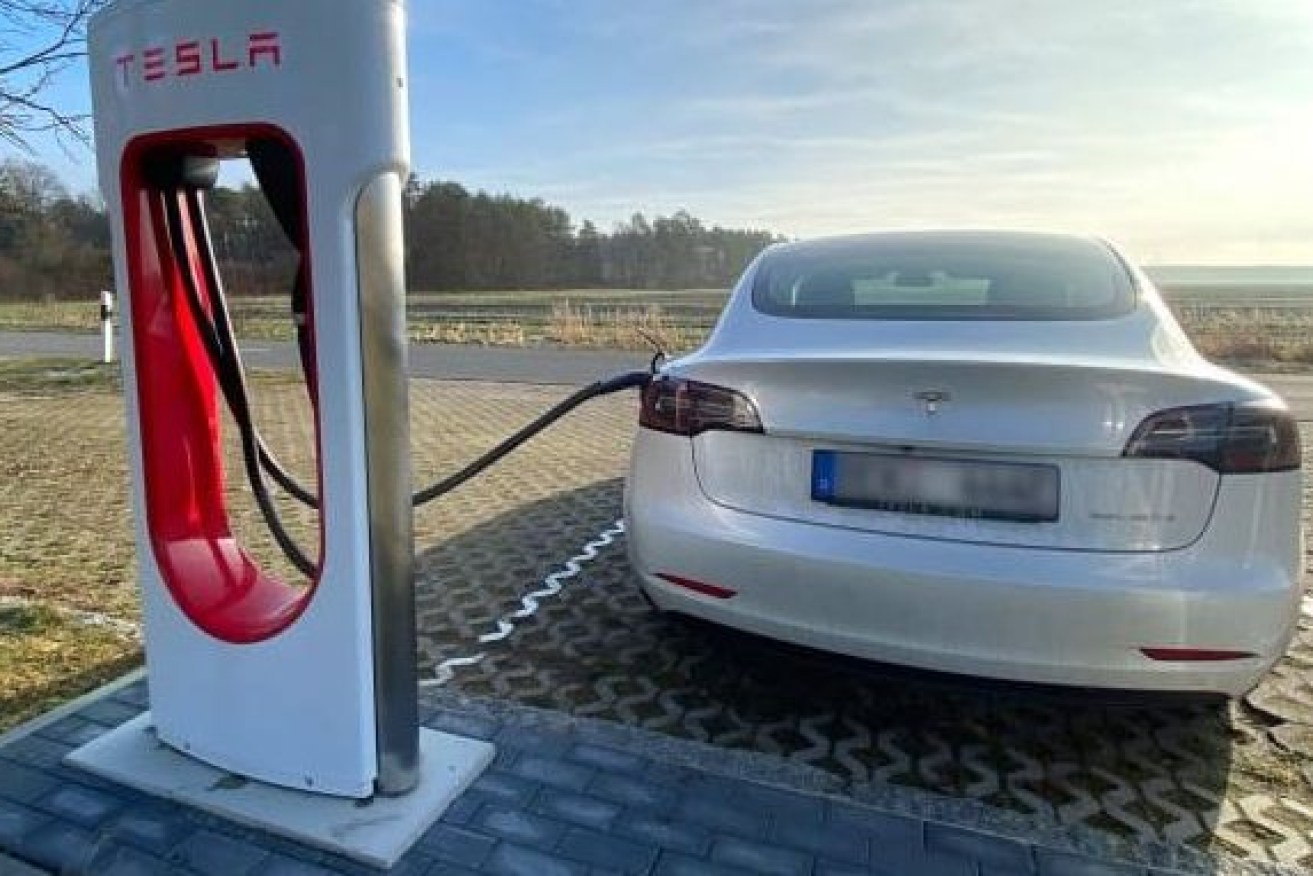Tax break with your Tesla: Report says commuters should get incentives to buy EVs
Australian workers with long commutes should receive tax breaks for buying electric vehicles, according to a new report into the technology.

Electric vehicles could save families $1700 per year if charged correctly. (File image).
The recommendation was one of three policies proposed in a study from KPMG Australia that investigated the uptake of electric vehicles in Brisbane, Sydney and Melbourne.
It found a disparity between the size and age of vehicles used in urban and outer suburban areas and recommended governments introduce “purchase incentives” to boost adoption of electric vehicles in more areas and accelerate carbon reductions.
The study followed targets set by Queensland, NSW and Victoria for 50 per cent of new car sales to be electric vehicles by 2030.
KPMG planning and infrastructure economics leader Ben Ellis said the study investigated EV uptake suburb by suburb and used an analytics platform to crunch statistics and identify ways to speed up Australia’s transition to electric vehicles.
“Understanding EV uptake at a local level provides an opportunity for Australia to develop uptake policies and pathways that will help us go from EV laggard to EV leader,” Ellis said.
“We find that emissions reductions are a local matter and that replacing a conventional vehicle with an EV in one area will not result in the same benefit as one in another.”
The report, launched at the Infrastructure Sustainability Council Connect Conference Queensland, identified significant differences in car-buying behaviour by location.
Australians in outer suburbs bought bigger cars and used vehicles for longer, the study found, while Australians living closer to cities used newer and smaller cars.
In Brisbane, for example, inner city residents used vehicles less than eight years old, while residents on the city’s fringe used vehicles older than 12 years.
Australians living in outer suburbs tended to have longer commutes, the study found, and replacing their petrol vehicles with electric models would have a greater environmental impact.
“If the current trends persist, emissions will be highest in areas with the slowest EV uptake,” Ellis said.
“Replacing one conventional vehicle in an outer suburb could lead to much higher emissions reductions than replacing one in an inner city.”
The study recommended governments introduce electric vehicle tax breaks for Australians with long commutes to boost their uptake in a policy similar to one introduced in Austria.
Under that policy, workers are given tax exemptions based on the length of their commute if public transport is not available.
Other recommendations included “purchase incentives” for low-cost electric vehicles and lower-income households, an EV import campaign and the introduction of petrol emission standards.
Infrastructure Sustainability Council chief executive Ainsley Simpson said the study showed Australia needed a targeted approach to transitioning from petrol to electric cars.
“Zero emission vehicles have a key role to play in accelerating net zero for the transport sector and for our nations, cities and regions,” she said.
“The KPMG analysis identifies that emissions reductions are a local matter, making it clear at the level of postcodes where the greatest economic, social and environmental benefits can be gained.”
The study comes as the federal government accepts submissions to its National Electric Vehicle Strategy that asks questions about EV infrastructure, local manufacturing and petrol emission standards.
Submissions on the consultation paper close on October 31.












